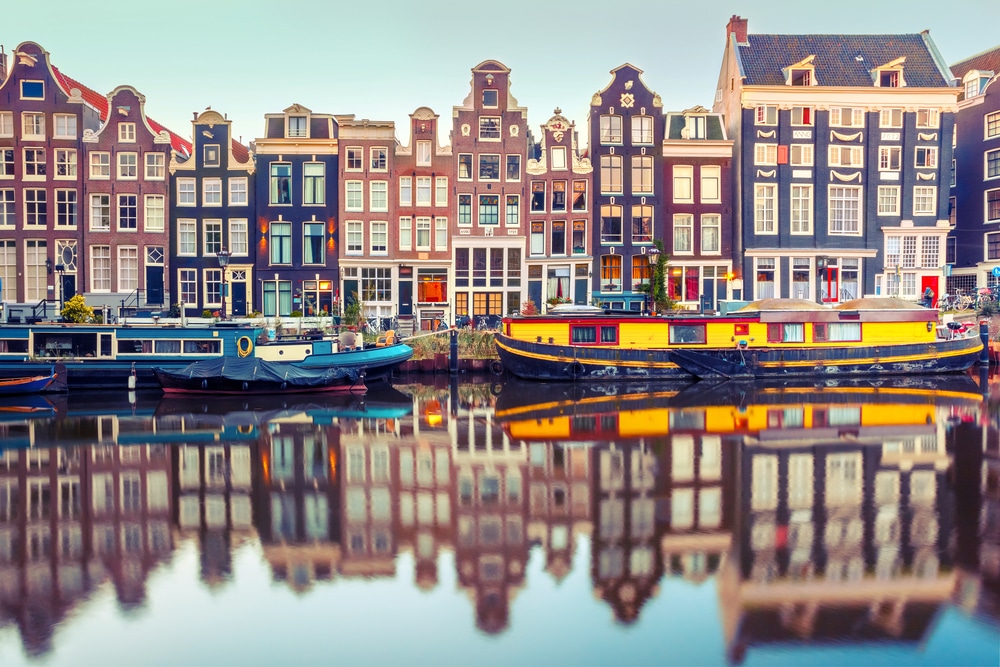
Know About Netherlands
Many people think that “Holland” and “Netherlands” mean the same thing. Even within the country, you may hear locals saying “Holland” when referring to the whole country. Technically, however, that is not correct. The country as a whole is called the Netherlands. It consists of twelve provinces; two of these provinces make up the Holland region, split into North and South Holland. The widespread colloquial use of “Holland” as a term for the country as a whole originated in the 17th century, when Holland was the most influential of the Dutch provinces. The Holland region still represents a sizeable share of the population; the three largest cities in the Netherlands are located here – Amsterdam, Rotterdam and The Hague (Den Haag). Therefore, “Holland” remains synonymous with “the Netherlands” for many people. And last, but not least: The official organisation that promotes the country as a study destination is also called “Study in Holland”.
The majority have suffered alteration in some form, by injected humour, or randomised words which don’t look even more slightly believable. If you are going to use a passage of Lorem Ipsum, you need to be sure there isn’t anything embarrassing hidden in the middle of text all the generators on the Internet.
Why Study In Netherlands
The Netherlands was one of the first non-native English speaking countries to offer courses taught in English to international students. You will have the option to study in either English or Dutch, depending on your language proficiency. The people of the Netherlands have a long standing reputation for being very tolerant and open minded, meaning that you will find yourself in a welcoming and diverse environment.
There are two types of higher education institutions in the Netherlands: universities of applied sciences (hogescholen; HBO), and research universities (universiteiten; WO). A university of applied sciences normally offers courses to prepare students for a specific vocation, whereas a research university offers more general courses. Both universities award globally recognised degree classifications.
Universities in the Netherlands are well ranked on the global stage. You will find 13 Dutch universities (not including universities of applied sciences) in the 2022 QS World University rankings top 500, with the University of Amsterdam being the highest ranked in 55th place. The next highest ranked is Delft University of Technology, which is in 57th place.
Why Study In Netherlands?
The quality of Dutch higher education is well-recognised. The tuition fees and cost of living are considerably lower than in English-speaking countries. Also, there are lots of scholarship opportunities. The Dutch teaching style is interactive and student-centred.

Institutes List:
1. Affordable tuition fees
Dutch public universities have very affordable tuition fees if you’re an European Union/European Economic Area (EU/EEA) national. You won’t usually pay more that 2,100 EUR per academic year, with various study programmes often being cheaper than that.
The story is a bit different for non-EU/EEA students, who pay anywhere between 6,000 and 20,000 EUR per year. That’s still much more affordable when compared with tuition fees of over 50,000 EUR per year in the USA.
2. No language barriers
Over 90% of Dutch citizens speak English. Whether you want to visit a famous tourist attraction on your own, ask for directions, or buy something from a shop, you won’t have any headache regarding language barriers.
The popularity of the English language also makes it very easy to socialise and connect with people, to take part in social and cultural events, or simply make friends and go out.
3. Work flexibility after graduation
In this case, work flexibility means two things: one, you can work in any number of fields after graduation and enjoy great salaries and employee benefits; and two, the Netherlands is one of the leading countries where the 4-day work week is a common option in all sectors of the economy.
4. A heaven for cycling enthusiasts
According to governmental statistics, there are over 23 million bikes in the Netherlands, more than the number of actual citizens (around 17 millions). Cycle lanes are literally everywhere, and many students and employees use them to commute on a daily basis.
It represents a great way to reduce air pollution and increase personal health and wellbeing.
5. The Netherlands is safe and enjoyable
The Netherlands is one of the safest and happiest countries in the world. This is hardly surprising when we look at the high standard of living, the educated citizens, and society as a whole.
How To Apply to Study In Netherlands?
The Dutch higher education system is based on the Bologna process. You can add by providing information about studying in the Netherlands, and you can book a free consultation from us.
Documents Required For The Procedure Are-
